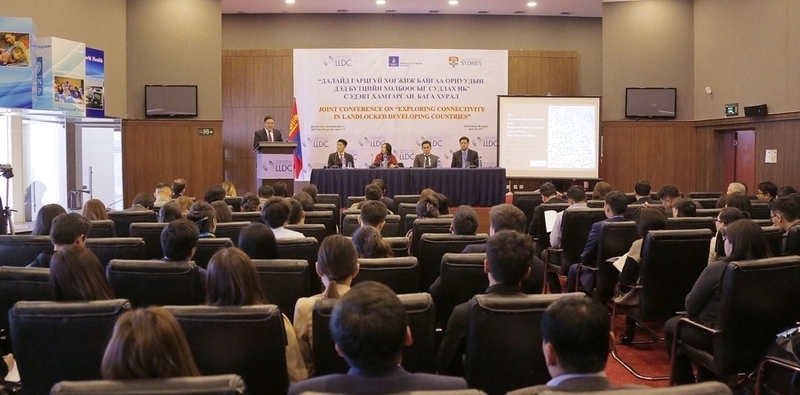
AKIPRESS.COM - The International Think Tank for Landlocked Developing Countries (ITT for LLDCs) and the University of Sydney jointly organized a conference themed “Exploring Connectivity in Landlocked Developing Countries” on April 20 at the UN House in Ulaanbaatar. The participants ran discussions under three spheres of connectivity: International trade; Information and communication technology; and Transport, reports Montsame.
Dr. Shaowen, a researcher at the University of Sydney, presented the findings of his study on “Transport and Infrastructure Connectivity”, Dr. Sandra – on “International Trade and Connectivity” by the example of landlocked Laos, and Dr. Barney – on “ICT Connectivity” and the development of ICT infrastructure and sunrise growth of technology in Azerbaijan.
It was found that growths of landlocked nations are quite distinct from each other. As for Turkmenistan, revenues from mining and oil exports are fully dedicated to road and freight spheres, while the situation is different in Kyrgyzstan. According to the researchers, the situations were almost impossible to correlate. Instead, researchers focused on how the countries have coordinated their national policies with their unique geological and regional characteristics, and what perspectives are observable.
Although, Mongolia was not taken as a separate subject, transport study considered the situations in five Central Asian countries, began Dr. Shaowen. “However, I think, the findings of the research can be applied to other countries. It is completely possible for the landlocked nations to improve connectivity in transport and the economy. But, possibility can only be mobilized with commitment”, he said.
The UN Group of Landlocked Developing Countries consists of 32 countries, which do not border with international waters in geological terms, isolated from the key global markets, have small population and small-scale economy. The study revolved around the examples of infrastructure growth in air transport and many other spheres in LLDCs. For instance, Laos has always maintained a same level of international investment in all parts of the economic cycle. Whichever political force has taken the power in Laos, international investors’ confidence has remained the same. Such stability is the main reason to why the Asian Development Bank and Japan, as well as other donors, are eager to invest in this country. As for Azerbaijan, it is the fastest growing economy among LLDCs, said Dr. Shaowen.
